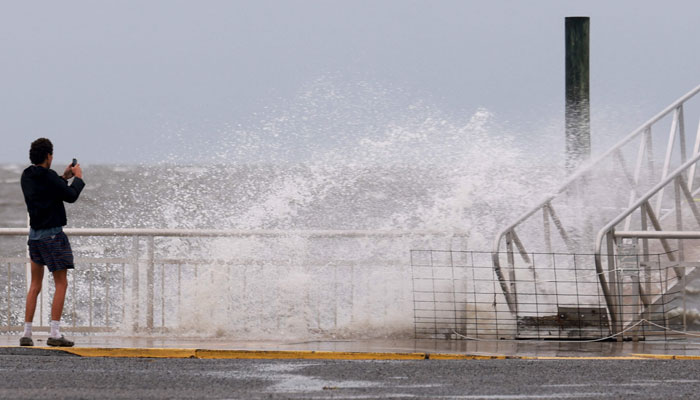

Residents of Florida were ordered to evacuate as Debby intensified into a hurricane late Sunday aiming at the city’s Gulf Coast, potentially bringing record-breaking rainfall and significant flooding.
The storm quickly grew to a Category One hurricane, the weakest on the five-level scale, due to the unusual warm Gulf of Mexico, and is projected to hit Florida’s Big Bend area around mid-day Monday, AFP reported.
The National Hurricane Center (NHC) has cautioned about life-threatening storm surges along the Gulf Coast, with the potential of six to 10 feet of flooding in some regions.
As Debby moves northeast into Georgia and South Carolina in the coming days, it is expected to bring about catastrophic flooding with potentially historic levels of heavy rainfall, as stated by the NHC.
"We are looking at potentially really, really significant flooding that will happen, particularly in north-central Florida," Governor Ron DeSantis told an emergency briefing on the storm Sunday.
He and NHC deputy director Jamie Rhome have stressed that Floridians should be making and completing their final emergency preparations immediately.
As of 11:00pm, Debby was about 160 kilometers west of Tampa carrying maximum sustained winds of 75 miles per hour and moving north at 12 miles per hour, the advisory said.
Debby is expected to dump six to 12 inches of rain in parts of Florida, and as much as 20 to 30 inches in coastal Georgia and South Carolina before the week is over, the NHC said.
The governors of Georgia and South Carolina have declared a state of emergency ahead of the storm's arrival.
Brennan predicted "multiple days of very, very heavy rainfall" -- at possibly record-breaking levels. He said there likely will be severe flash flooding "in areas that don't normally flood."
President Joe Biden on Sunday approved an emergency declaration for Florida, allowing federal aid to be expedited.
DeSantis has activated the state's National Guard, with 3,000 service members on standby to help with storm response.












